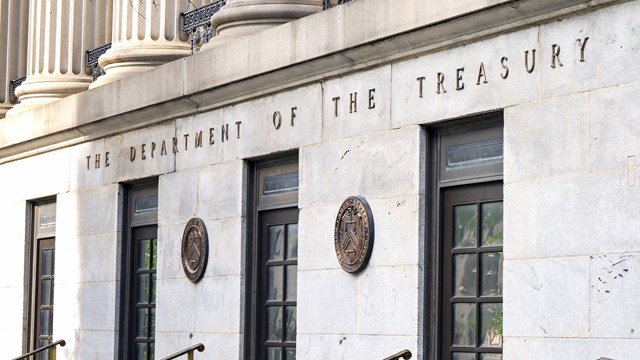In a recent piece for the New York Law Journal, attorneys from Manhattan-based law firm Ganfer Shore Leeds & Zauderer delve into the issue of privacy as it pertains to the personal information of shareholders and unit owners - and the rights of co-op and condo boards to access that information.
Nobody’s Business But the Board’s
Along with professional managing agents, volunteer directors on the board of a co-op or condo become privy to the financial histories, criminal records, and—in some cases—medical information of both current residents and applicants in the course of carrying out their administrative duties. According to authors Ira Brad Matetsky and William A. Jaskola, although board members and the board as a body are ethically obligated to keep such information private, they have no such legal obligation - because “There is no general common-law ‘right to privacy’ in New York,” say the authors.
However, there is an implied trust between a board and their fellow shareholders or owners which presupposes that confidential personal information learned as a result of that relationship will be kept confidential. Matetsky and Jaskola contend that such confidentiality is legally enforceable and has, in fact, been enforced in New York courts - but its limits remain unclear.
“In some circumstances,” they say, “the courts may hold that fiduciary duties exist between a residential cooperative and its tenant-shareholders or a condominium and its unit owners. New York case law reflects disagreement as to when and to what extent a fiduciary duty is owed in this context.”
Part of the confusion lies in the protections afforded to boards under the Business Judgement Rule, as well as the general rule that corporate board members cannot be held liable for breach of fiduciary duty where their actions are taken by the board as a collective whole rather than by one or more individual directors or managers. As long as a board’s actions are “for the purposes of benefiting the cooperative or condominium, within the scope of their authority, and in good faith,” they are protected by the Business Judgment Rule.
On the other hand, say the attorneys, there have been court cases in New York where claims for breach of fiduciary duty by cooperative directors or condominium managers have been upheld.
Beyond the Board
Aside from a board's access to others’ personal information and the questions of confidentiality that ensue, case law has been ambiguous on other non-board shareholders’ or owners’ rights to their neighbors’ personal information. Matetsky and Jaskola give the example of a shareholder in a cooperative who demands to inspect the ballots cast in a recent election. Rather than enforcing the protection of privacy as to how each shareholder voted, courts have held that a cooperative board has “the opposite obligation”: the cooperative “can be required to disclose the ballots to any … shareholder who wishes to inspect them, at least where the cooperative’s bylaws do not provide otherwise.”
In fact, the lawyers point out, case law has trended toward expanding the scope of records to which cooperative shareholders and condominium unit owners will be accorded access, as long as the inspection is sought on reasonable notice, in good faith, and not for an improper purpose.
In a 2016 case, for example, a shareholder filed a defamation lawsuit against her co-op’s board for sending emails that revealed her arrears status and posting flyers that listed the amount of arrears as well as her apartment number. The court held that these communications “were protected by a qualified common-interest privilege.”
COVID Complications
The ambiguity in the law raises the question of whether a board or building management might reveal a resident’s medical status when learning of a documented or presumed COVID-19 infection. The current consensus, say the attorneys, is that residents should be told that someone in the building has tested positive—with a reminder to use appropriate precautions such as mask-wearing and social-distancing—but the specific name and apartment number of the sick resident should not be disclosed. If a shareholder or unit owner makes a books-and-records demand to find out who in the building has COVID-19, “It is likely that the courts would allow a board to withhold this information to protect the privacy of the residents’ medical information, but as yet there are no cases on the issue,” say the authors.
Another issue concerning privacy in multifamily buildings relates to tightened access requirements adopted as a result of the coronavirus pandemic. At the beginning of the emergency in March 2020, recall the attorneys, many boards adopted policies that temporarily barred non-residents from the premises. As time passed and the emergency restrictions eased, many boards have relaxed their prohibitions against visitors, but now require them to submit health information or undergo precautionary procedures such as temperature-taking that in “normal” times might seem intrusive or invasive. Whether this amounts to a privacy breach has not been tested legally; moreover, visitors generally lack any contractual or fiduciary relationship to the building or its owner.
While many questions remain unanswered concerning whether and to what extent privacy rights will be enforced in New York against cooperatives, condominiums, and other property owners and management entities, boards and managers are reminded to treat private information carefully. Given their retention of shareholders’ or unit owners’ financial or other highly personal documents—such as tax returns or credit reports submitted when seeking board approval (for cooperatives) or waiver of the right of first refusal (for condominiums)—they “might wish to review their bylaw provisions governing records in an attempt to provide that certain categories of records, such as those containing shareholders’ medical and personal financial information, are outside any otherwise applicable inspection rights,” suggest Matetsky and Jaskola. And if they are ever asked to disclose “information that a reasonable person might expect to be kept confidential,” the best bet for boards and managers is to always consult with legal counsel.










Leave a Comment